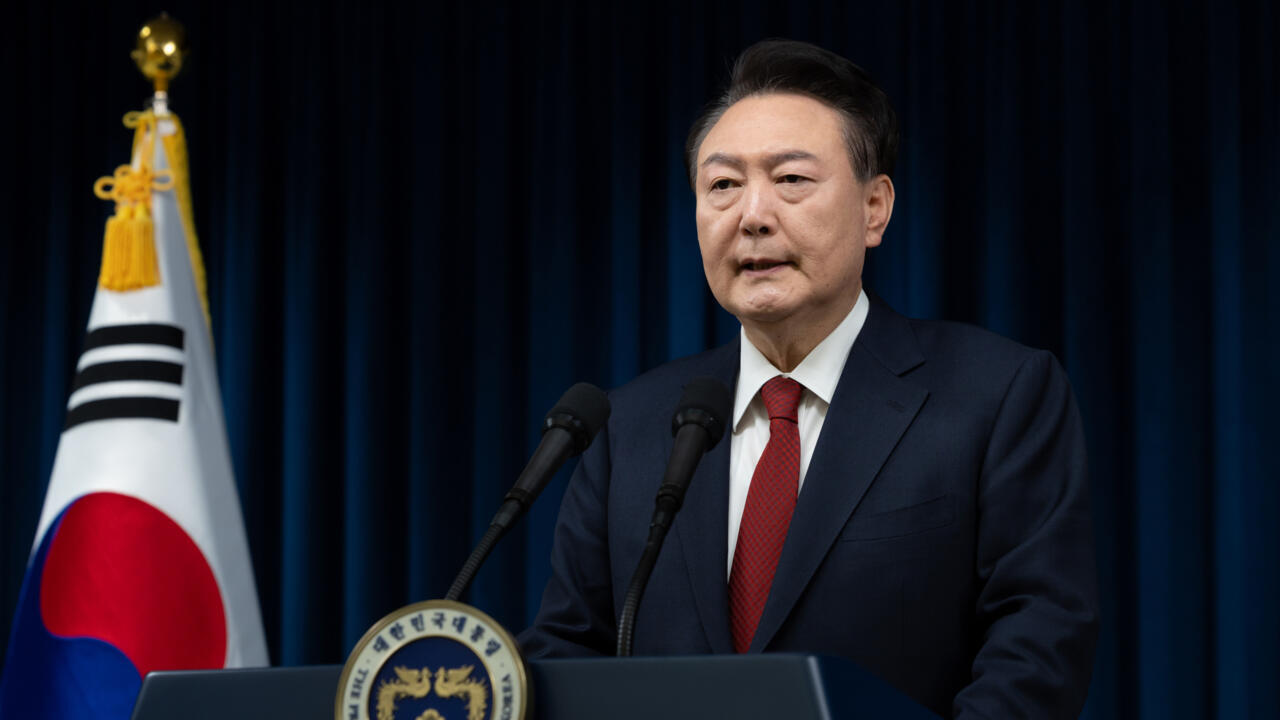Islamabad, April 01: South Korea’s Constitutional Court is set to deliver its much-anticipated verdict on President Yoon Suk Yeol’s impeachment this Friday, months after he was suspended from office following his decision to impose martial law.
Yoon’s controversial declaration on December 3, which aimed to bypass civilian authority, threw the nation into political turmoil when he deployed armed military personnel into parliament.
Despite the presence of troops, lawmakers proceeded with an impeachment vote, ultimately suspending Yoon.
However, the political uncertainty that followed has taken a toll on South Korea’s economy and governance, while escalating tensions as the U.S., under President Donald Trump, imposes broad-ranging tariffs on the region.
The Constitutional Court has spent weeks conducting impeachment hearings and deliberations, sparking speculation of deep divisions among the justices over the case.
“The ruling on the president’s impeachment case will be announced on April 4, 2025, at the Constitutional Court,” a court spokesperson confirmed in a statement on Tuesday.
For Yoon’s removal to be finalized, at least six of the eight justices must vote in favor of impeachment. If upheld, fresh elections will be required within 60 days to fill the presidency.
Over the past months, large crowds have gathered in Seoul, holding demonstrations both in support of and against the embattled leader.
Yoon, a former prosecutor, was taken into custody in January on charges of insurrection but was later released in early March due to procedural reasons.
He has remained defiant throughout the legal battle, accusing political opponents of orchestrating a “malicious” campaign against him.
This case marks the first time a sitting South Korean president has faced criminal charges while still in office. Yoon stands accused of insurrection linked to his imposition of martial law.
“The Constitutional Court is likely to issue a unanimous decision to remove Yoon from office this Friday, as the legal complexities surrounding his declaration of martial law are minimal,” stated Noh Hee-bum, a former Constitutional Court research judge and attorney.
“The court’s primary duty is to uphold the Constitution, and Yoon’s actions were a direct violation of its principles,” he added.
Possible Elections on the Horizon
Yoon’s political party has expressed its readiness to accept the court’s verdict, calling for a just and impartial decision while urging national stability.
“The People Power Party (PPP) will respect the court’s ruling, and both the ruling and opposition parties must work towards healing divisions and fostering national unity,” said PPP floor leader Kweon Seong-dong.
On the opposition front, the Democratic Party welcomed the court’s decision to bring the case to a conclusion.
“After four long months, the Constitutional Court has finally responded to the will of the people,” a Democratic Party spokesperson said.
“We trust the court will uphold the founding principles of the Republic of Korea by removing Yoon Suk Yeol, whose actions threatened constitutional order,” the spokesperson added.
If the impeachment is upheld, opposition leader Lee Jae-myung is currently the leading candidate for the subsequent presidential election.
Lee’s path to the presidency, however, is not guaranteed. Last week, an appeals court overturned his conviction for violating election laws, improving his chances of running.
However, if the conviction is reinstated before the election, he could lose his parliamentary seat and face a five-year ban from holding office, including the presidency.
Leif-Eric Easley, a professor at Ewha University in Seoul, suggested that the ruling on Lee’s case could be perceived as an attempt to recalibrate South Korea’s political landscape.
Also Read: South Korean President Apologizes To Nation Amid Martial Law Controversy
“This could be seen as the judiciary’s effort to unwind the legal battles of the past three years and ensure that South Korea’s political crisis is settled through democratic elections rather than court decisions,” Easley remarked.
Prime Minister’s Reinstatement
In a separate case, the Constitutional Court recently ruled in favor of reinstating Prime Minister Han Duck-soo, who had been impeached earlier. As acting president, Han assumed leadership following Yoon’s suspension.
Legal experts have noted that the reinstatement of the prime minister does not necessarily influence the ruling on Yoon’s impeachment since the two cases involve different legal considerations.
While Han’s case did not focus on the constitutionality of martial law, the upcoming decision on Yoon will determine whether his actions justified his removal from office.









